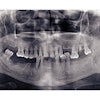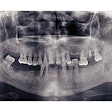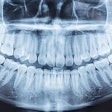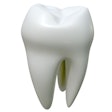Adults in the U.K. who do not pay for National Health Service (NHS) dental treatment account for a bigger proportion of complex dental treatments than paying adults, according to an NHS Information Centre report.
One reason for this may be a lower standard of dental health among nonpaying adults, according to "NHS Dental Statistics for England: 2010/11."
Less than a quarter of all courses of treatment (9.0 million out of 39.2 million) performed by dentists in 2010/2011 were for nonpaying adults, but this group accounted for more than half of all the complex courses of treatment (1.2 million out of 2.2 million), such as bridgework and dentures, carried out during this time.
The report brings together information on different aspects of NHS dentistry in England, from the number of dentists working for the NHS and the amount of activity they perform, to the number of patients seen by an NHS dentist. It points to an increasing number of NHS dentists, NHS dental patients, and NHS dental treatments.
Other findings include the following:
Among child patients, 7.8 million were seen by an NHS dentist in the 24 months to June 2011, down 0.3% from the 24 months to March 2006.
An increasing number of female dentists are working for the NHS. In 2010/2011, 22,800 dentists performed NHS activity – an increase of approximately 800 (3.6%) overall from the previous year, and 43.5% of NHS dentists are now women, following a 6.8% increase from the previous year.
For the first time the report includes information on the different types of clinical treatments performed by dentists. A key finding from this data is that the number of treatment courses that included a fluoride varnish increased substantially between 2009/2010 and 2010/2011. Child treatments of this type rose by 55.1% to nearly 850,000, while there was a 21.6% rise among adults to 335,000.


















